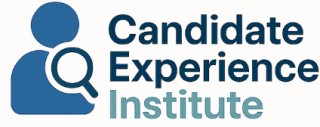Defining Candidate Experience
Understanding the Essence of Candidate Experience
Candidate experience goes beyond a mere facet of the hiring process; it shapes potential employees' perceptions of your company and influences their decision to join your business. It encompasses every interaction a candidate has with your organization, from the initial job posting to the final stages of decision making. In your evaluation process, it's vital to recognize the impact this experience has on both short- and long-term business performance. Evaluating your candidate experience will help unlock valuable insights into what truly matters in attracting and retaining talent. Moreover, a well-designed candidate experience can serve as a powerful tool for promoting your company brand. Crafting an effective candidate experience requires attention to various elements, including cultural fit, problem solving skills, and work-life balance opportunities. By investing time and resources into developing a seamless and welcoming candidate experience, you can improve your company's standing in the competitive job market. Assessing your current strategies and refining them offers not just an immediate recruitment advantage, but fosters professional development and growth within your business. For those looking to delve deeper into elevating their candidate experience strategies, "mastering the art of candidate experience" offers essential selection tips that can transform the hiring journey into a strategic asset.The Impact of Candidate Experience on Your Brand
Influence of Successful Candidate Engagement
Understanding candidate experience is crucial for businesses aiming to build a positive brand awareness among potential hires. The way candidates perceive your hiring process directly affects both the immediate interaction and long-term impression of your company. Ensuring an engaging experience can not only entice top talent but also portray professionalism and inclusive company culture. In the realm of competitive job markets, this creates a vital distinction for any business.
Your Brand's Perception in the Job Market
When candidates encounter a seamless, respectful, and transparent application process, it reflects positively on your brand. This perception does not end with filled positions; candidates often share their application experiences with peers, contributing to your organization's reputation in broader professional circles. A positive experience can thus serve as a powerful tool in strengthening employer branding.
Candidate Experience as a Reflection of Company Values
Candidate experience offers a reflection of company culture and values, revealing how prospective employees may expect to be treated once they join your team. This is foundational in demonstrating transparency, fairness, and respect—qualities that high-caliber candidates look for in a prospective employer. Evaluating your current strategy can bring to light areas where enhancements can be made to better align experiences with company values. For more profound insights, delve into understanding the cultural framework in candidate experience.
Methods to Evaluate Candidate Experience
How to Effectively Evaluate the Candidate Experience
Evaluating your candidate experience is a crucial phase in refining your recruiting processes and ensuring alignment with your company's broader goals. This activity not only fine-tunes your hiring practices but also offers valuable insights into cultural fit and professional development opportunities. Here are some practical methods to conduct this evaluation:
- Surveys and Feedback Forms: One of the simplest yet most effective methods is collecting feedback directly from candidates about their experience throughout the hiring journey. Useful insights can be gathered by asking specific questions about your business's recruitment process, job descriptions, and their interaction with your team.
- Candidate Interviews: Consider engaging in thoughtful debriefing interviews with candidates post-interview. This enables a deeper assessment of their experience and offers you an understanding of how your company's culture and values are perceived.
- Data Analysis: Leverage analytics tools to assess the performance of different stages of your hiring process. Key areas to examine include time to fill a job position, drop-off rates at each stage, and the overall efficiency of your recruitment funnel.
- Social Media and Job Review Platforms: Monitor your company’s reputation through online platforms where candidates often express their experiences. This is crucial for understanding public perception and areas needing improvement.
- User Experience Testing: Conduct user experience testing on your digital touchpoints, like the career site and application forms. This helps identify potential bottlenecks or problematic areas that candidates face when applying for a position.
- Text Messaging Strategy: Consider the impact of implementing a text messaging strategy as part of the evaluation process. This method can provide immediate feedback and enhance communication with candidates, as discussed in recent industry analysis.
The above methods will help you gain a well-rounded view of your current candidate experience. This approach not only assists in identifying the gaps in the existing system but also sets a clear path for improving the applicant's journey, enhancing skills experience, and aligning with long-term workforce goals.
Identifying Key Metrics for Evaluation
Key Metrics to Gauge Candidate Experiences
Understanding the various metrics essential for evaluating candidate experiences is crucial in streamlining your hiring process. These metrics help to determine how candidates perceive your company, their overall experience, and areas needing improvement. Here are some vital metrics to focus on during your evaluation process:- Candidate Satisfaction Surveys: Gathering feedback is a fundamental step. These surveys offer valuable insights into how candidates view different components of the hiring process, including company culture, communication, and transparency.
- Time to Hire: This metric evaluates the efficiency of your recruitment pipeline. A lengthy hiring process can deter candidates and impact their perception of your company. Assessing your time to hire will help identify bottlenecks and areas for enhancement.
- Offer Acceptance Rate: Analyzing the ratio of job offers accepted versus those extended gives insights into how well candidates perceive your company's value proposition.
- Cultural Fit and Adaptability: Understanding how candidates align with your company culture is important for long-term retention and satisfaction. Evaluate how well your assessments gauge this fit.
- Candidate Drop-off Rate: Monitoring where candidates are exiting in the hiring process provides insight into potential barriers or areas of confusion. High drop-off rates may indicate issues needing resolution.
- Feedback from Interviewers: Insights from those conducting interviews offer additional perspectives on candidate quality and fit, augmenting your overall understanding.
- Job Requisition Quality: Assessing how job requirements resonate with candidates and their skills experiences can help tailor more effective job postings.
Common Challenges in Evaluating Candidate Experience
Addressing Common Obstacles in Assessment
Evaluating your candidate experience is a crucial part of refining your hiring process, but it is not without its challenges. These obstacles, when identified and addressed, will help enhance your company’s brand and improve the overall candidate experience.- Lack of Standardization: One of the primary challenges is the absence of a standardized evaluation process. Without a consistent method, it becomes difficult to gather reliable insights into the candidate experience. Your current processes need a structured framework to ensure all touchpoints are evaluated uniformly.
- Subjective Feedback: Feedback from candidates can often be subjective and influenced by individual experiences rather than objective truth. This can skew your assessment efforts. Utilizing a blend of quantitative and qualitative data will help mitigate this issue, providing a more comprehensive view of candidate interactions.
- Time Constraints: The fast-paced nature of recruitment often leaves little time for thorough assessments. However, dedicating time to evaluate your practices is essential for gaining valuable insights into your business strategy and improving long term outcomes.
- Insufficient Skills: Sometimes, those responsible for evaluating the candidate experience may lack the necessary skills or experience, resulting in ineffective assessments. Investing in professional development can ensure your team has the skills needed for a robust evaluation.
- Cultural Fit Alignment: Assessing your candidate’s cultural fit during the hiring process can be challenging. However, it is essential for ensuring candidates align with your business values and work environment. An effective evaluation strategy will address this by incorporating cultural fit assessments.
Strategies for Improvement Based on Evaluation
Implementing Feedback Loops for Continuous Improvement
Based on the evaluation of your candidate experience, establishing structured feedback loops can be an effective strategy for improvement. These loops involve gathering insights directly from the candidates about their experience with your hiring process. This feedback will help you identify what changes are necessary to enhance the experience, aligning it more closely with your business goals.
Enhancing Communication and Transparency
One of the main challenges highlighted in evaluating the candidate experience is often related to communication. Creating clear communication strategies can improve the perception of the company. This involves informing candidates about each step of the hiring process, setting transparent timelines, and providing constructive feedback regardless of the decision outcome. Improved communication not only reflects positively on your company but also aids candidates' professional development by providing them with valuable insights into their skills and experience.
Streamlining the Hiring Process
Efficiency in your hiring process is crucial for long-term success. By analyzing which stages of the process require adjustment, you can reduce the time it takes to make hiring decisions. This reduction not only impacts the candidates' experience positively but also benefits your business performance by ensuring that top talent is onboarded swiftly.
Investing in Technology and Staff Training
Technology plays an essential role in evaluating and enhancing the candidate experience. Implementing tools that facilitate assessments and performance tracking can help streamline processes. In addition, training your staff to use these tools effectively and understand the importance of cultural fit can lead to improved hiring outcomes, ultimately supporting your business goals.
Prioritizing Candidate Skill Development
As candidates progress through your hiring process, providing opportunities for skill development can be highly beneficial. This could involve sending resources related to the job they applied for or offering feedback sessions that highlight areas for improvement. Such initiatives demonstrate your company’s commitment to the professional growth of candidates, enhancing your reputation and making you an employer of choice.













